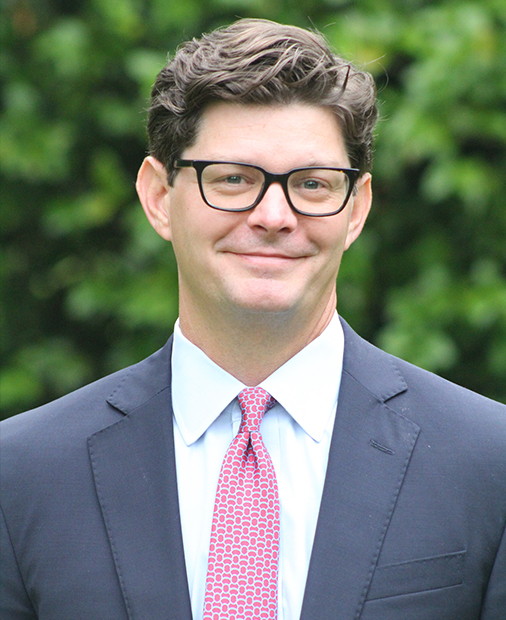Online Trademark Attorneys
Trademark Attorney Working With Clients in Ottawa, Ontario
If you're an entrepreneur, you know that protecting your intellectual property should be high on your list when it comes to safeguarding your company. However, as a successful business owner, you also know the steps and costs of filing a trademark in the U.S. can be expensive and arduous.
This conundrum can be even more overwhelming for new business owners who want to do everything possible to minimize the price of securing trademarks. They try to handle complicated tasks like trademark registration on their own, which can be a big mistake - especially when juggling the day-to-day tasks of running a business. You may be thinking, "But what about those set-it-and-forget-it services you can find online? All you have to do is plug in your info, and you're done." Using pre-made templates for trademark filing can be tempting, but doing so can leave you with inadequate protection and hurt you in the long run.
So, what is the easiest, most cost-effective route to consider that also minimizes legal risk? The truth is, before you spend money on an online filing service, it's best to consult with a trademark attorney working with clients in Ottawa, Ontario.
At Sausser Summers, PC, our experienced trademark attorneys can help you understand the trademark process step by step. We can even help with U.S. trademark filing, U.S. trademark responses, and U.S. trademark renewals at a price you can actually afford. That way, you can make an informed decision regarding your business without having to break the bank.
Resources
Sausser Summers, PC: Simplifying the U.S. Trademark Process
Hiring an attorney can be a daunting task, but at Sausser Summers, PC, our goal is to make the process as simple and seamless as possible for you. That's why we offer a straightforward checkout service. First, you choose your flat fee trademark service and fill out a short questionnaire. Then, we will contact you within 24 hours to discuss the details of our service. From there, one of our experienced trademark attorneys will get to work on your behalf.
Using a trademark attorney for filing in Ottawa, Ontario, can significantly increase your chances of a successful registration. The U.S. government recommends hiring a trademark attorney to help with your application, and our team of trademark lawyers is dedicated to meeting your needs. In fact, we help ensure your application is filed correctly the first time so you can get on with your life and avoid legal risks.
At Sausser Summers, PC, we work closely with our clients to understand their needs and provide them with sound professional advice. We never offer incomplete services, such as simply filing for registration, because that would leave you open to legal risks. You can rely on us to handle your intellectual property matters, and our flat fee services can help protect your business in a simple, straightforward, and affordable way. It's really that simple.
In terms of filing a U.S. trademark, we provide an easy three-step process to protect your intellectual property:
1. You provide your trademark info to our team via an online form.
2. Our team performs a comprehensive trademark search. This search ensures that no other marks will prevent you from registering your trademark in the U.S. Once performed, we'll send you a legal opinion letter that details our findings.
3. Sausser Summers, PC, files your U.S. trademark application. We are then listed as your Attorney of Record on file. From there, we'll provide ongoing updates regarding the status of your trademark as it works through the registration process.
The bottom line? At Sausser Summers, PC, we give both new and seasoned business owners an easy, efficient, cost-effective way to protect the one asset that sets them apart from others: their name.

The bottom line?
At Sausser Summers, PC, we give both new and seasoned business owners an easy, efficient, cost-effective way to protect the one asset that sets them apart from others: their name.
Do I Really Need a Trademark Attorney for Protecting My Business in Ottawa, Ontario?
It's not necessary to be a lawyer in order to apply for a trademark. Anyone can submit a trademark application to the U.S. Patent and Trademark Office (USPTO). However, registering a trademark involves more than just filling out a form. It's essential to conduct thorough research, accurately identify and clearly explain your trademark to ensure it receives adequate protection. And even after securing a trademark, you've got to monitor it consistently to make sure it's free from infringement.
The big takeaway here is that it's always a good idea to work with a trademark attorney to protect the intellectual property that you've worked so hard to establish. According to the Wall Street Journal, applicants are approximately 50% more likely to secure their trademark than people who file applications on their own. If your trademark application is rejected by the USPTO, you will need to revise and refile it, incurring additional filing fees. To avoid delays and extra costs, it is best to have a trademark lawyer help you get it right the first time.
Additional Benefits of Using a Trademark Attorney
Great trademark attorneys (like those you'll find at Sausser Summers, PC) will help with every step of filing and enforcing your trademark. Some additional benefits include the following:
Check to see if your proposed trademark is registered by another entity.
Conduct research to see if another business is using the trademark for which you're applying.
Provide advice and guidance on the strength of your trademark.
Draft and submit your trademark applications and application revisions.
Advice and guidance regarding trademark maintenance and protection.
Monitor the market for unauthorized use of your trademark.
Trademark enforcement to protect you against infringement.

Curious whether our trademark attorney services are right for you and your business? Contact Sausser Summer, PC, today. Let's talk about what you need, and how we can help.
What About Online Filing Services?
Online services, can provide you with basic assistance in filing your trademark. However, they will never be a legitimate substitute for an experienced trademark attorney helping clients in Ottawa, Ontario.

Although online filing services offer a step-by-step process, they take a one-size-fits-all approach to preparing legal documents. Even their advanced service only provides basic attorney assistance in completing your paperwork and helping with minor roadblocks. Online filing services' disclaimer highlights the many limitations of its services, including the fact that communications are not protected by attorney-client privilege. In addition, online filing services cannot provide advice, explanations, opinions, recommendations, or any kind of legal guidance on possible legal rights, remedies, defenses, options, selection of forms or strategies.
In other words, online filing services can offer you the necessary forms and point you in the right direction, but they cannot customize their services to your specific needs or help you with serious complications that may arise.
For the most comprehensive trademark service and protection, it's always wise to work with highly rated trademark lawyers, like you'll find at Sausser Summers, PC.
Understanding Trademarks Over Time
Trademarks in the U.S. can last indefinitely, but did you know that clients in Ottawa, Ontario can file a trademark online, only to lose protection in some circumstances? Trademarks differ from patents and copyrights in that they do not have an expiration date. However, to prevent the cancellation of a trademark, you must maintain it. To ensure that your trademark remains protected, you must actively use it in commerce and renew it with the USPTO every ten years.
The Lanham Act tells us that "use in commerce" is the legitimate use of a trademark in the ordinary course of trade. In other words, you cannot register a trademark solely to reserve the rights to it in the future. In most cases, a trademark must be used continuously in connection with the goods or services it is registered for.

Steps to Renew Your Trademark
Trademarks are registered with the USPTO and generally need to be renewed every ten years. However, there is one crucial exception that you should be aware of. Within the first ten years of owning a trademark, you must file for renewal between the fifth and sixth year from the date of your initial registration.
During this renewal period, you are required to submit a Section 8 declaration, a specimen that shows how the mark is being used, and pay the required fee. You can also apply for Section 15 Incontestability status, which can strengthen your trademark rights. This application, although not mandatory, can make it harder for others to challenge your ownership of the mark.
After the first renewal, which falls between the fifth and sixth year of ownership, the next renewal filing is due between the ninth and tenth year, and then every tenth year thereafter. In the ninth year you will need to file a Section 8 declaration, attesting to your use of the mark or excusable nonuse. You've also got to file a Section 9 renewal application before the end of the tenth year to keep your registration active.
It is worth noting that the USPTO provides a six-month grace period if you fail to renew your mark within the required time frame, but it is best not to rely on it. If you don't file within the grace period time limits, the USPTO will cancel and expire your mark.
By hiring trademark attorneys helping clients in Ottawa, Ontario, you can avoid the pitfalls and mistakes that can arise and cause you to lose your rights to the mark that represents it.
Losing Your Trademark Rights Through Abandonment
In the event that you stop using your trademark and have no plans to resume using it in commerce, it may be considered abandoned by the USPTO. This could result in the loss of your protective rights to the mark. Typically, a trademark is assumed to be abandoned if it has not been used for three years. However, you may be able to refute this presumption by providing evidence that you intend to use the mark again in the future.
Losing Your Trademark Rights Through Inappropriate Licensing
In addition to trademark abandonment, you should also be wary of improper licensing. It's important to remember that once you allow someone else to use your trademark, you must keep an eye on how they use it. You should monitor the products or services that feature your trademark to ensure that they meet consumers' expectations in terms of quality. Failure to do so can lead to a "naked" trademark license and the loss of your protective trademark rights.
How to Avoid Having to Refile Your Trademark
If you're wondering how you can avoid refiling your trademark, the answer is simple: file it correctly the first time around. Filing a trademark isn't inherently difficult, but when doing so, it's very important that certain aspects are filled out accurately in your application. If any information is missing or incorrect, the trademark application may be considered "void ab initio" or void from the beginning, requiring you to file again.
To avoid this, make sure that the information you provide in the application is accurate and complete, including the ownership of the trademark. For instance, if a corporation has multiple shareholders, it should not file under the President's personal name. The rightful owner should be the one/entity that ultimately controls the trademark and the associated goods/services.
It is also important to ensure that the goods and/or services description is precise. For example, if you sell electronic products, you should not file for research and development services despite having a research and development department. The goods/services description should reflect the goods/services you offer to customers, not the departments within your business.
Additionally, providing accurate dates of first use when filing for a trademark is crucial. The USPTO requires two dates to be specified - the date of first use anywhere and the date of first use in interstate commerce. Contact our trademark law office today to learn more about having accurate dates on your filing paperwork.


What Makes an Online Trademark Attorney Great?
At Sausser Summers, PC, we often get questions about how to distinguish run-of-the-mill consultants and others from great trademark attorneys. After all - when you're looking for an attorney to file or prosecute your business trademark, you should know their qualifications. Here are three ways you can separate the proverbial wheat from the chaff when it comes to trademark attorneys.
It's crucial to seek legal advice from a licensed trademark lawyer rather than relying on advice from non-professionals like trademark consultants. The USPTO even recommends hiring an attorney to help with the trademark process. Although trademark consultants may provide advice on trademark availability or name marketability, they cannot file the trademark for you or offer legal advice. According to the Rules of Practicing in trademark cases, "Individuals who are not attorneys are not recognized to practice before the Office in trademark matters." This rule applies to individuals who assist trademark applicants.
When searching for a trademark attorney, it's important to find someone with a strong background in trademark law. Look for an attorney who specializes in this area and has significant experience handling trademark-related cases. Avoid lawyers who don't have expertise in this field, as they may not be able to provide the guidance and support you need.
Ensure your attorney provides updates throughout the trademark registration process to avoid missing deadlines, including responding to any Office actions within six months. Failure to do so can result in trademark abandonment. The USPTO will only correspond with the listed attorney of record, so make sure your attorney keeps you informed.
In summary:
- Be sure you're using a licensed trademark attorney helping clients in Ottawa, Ontario.
- It's best to work with a trademark lawyer who has years of experience filing trademarks.
- Ensure that your trademark lawyer is willing to provide ongoing notifications relating to your trademark application process.

Trademark Attorneys Working Hard for You
Building your brand and gaining recognition for it is a significant achievement, and it's important to protect it. However, there are certain pitfalls and mistakes that can arise, causing you to lose your rights to the mark that represents it. By working with knowledgeable trademark attorneys, you can avoid these issues and file your trademark successfully.
With an A+ rating from the Better Business Bureau (BBB), Sausser Summers, PC, offers comprehensive guidance, strategic advice, and reliable representation for a variety of trademark matters. Our attorneys have years of real-world experience and, having registered countless trademarks with the USPTO, provide our clients with individualized representation when they need it most.
If you're looking for skilled, adept, and experienced counsel, look no further than our trademark law firm. Contact us today to schedule your initial consultation and learn how we can help you safeguard your brand.
Latest News in Ottawa, Ontario
Disclaimer:

 Sausser Summers, PC
Sausser Summers, PC Call
us (843) 654-0078
Call
us (843) 654-0078